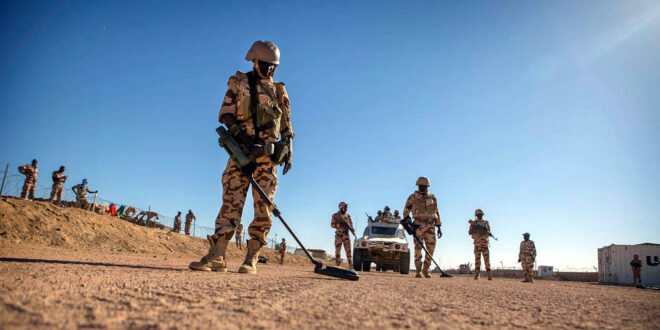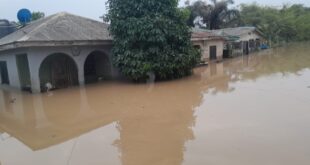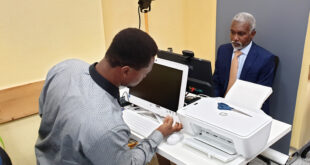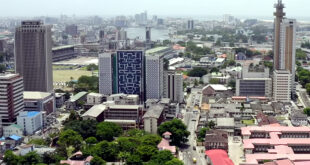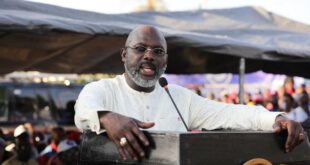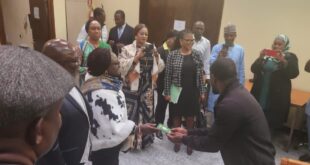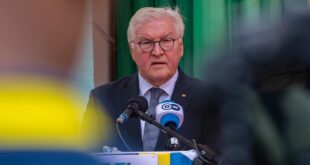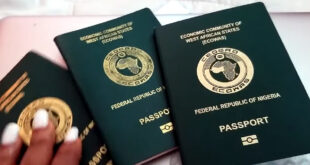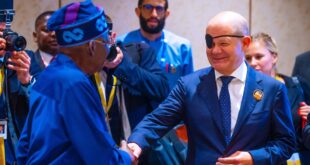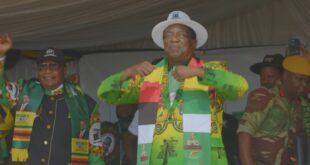President Recep Tayyip Erdogan announced on Sunday (5 January) that Turkey had started the deployment of troops to Libya, after the country’s parliament gave its approval.
Ankara is sending its soldiers to Libya to support the UN-backed Government of National Accord which is battling the troops of rebel general Khalifa Haftar for the control of the country. Since his coup declaration of February 2014, General Haftar has been on the conquest, starting from the Libyan eastern border with Egypt, his troops are now outside of the capital.
In a desperate move, the UN-recognised government in Tripoli led by Prime Minister Fayez al-Sarraj asked for international military support. Only Turkey agreed to go to its aid.
However, Turkey’s move is likely to further complicate the situation in Libya beset by civil war since 2013 after disagreements over election results. In fact, since the overthrow of Muamar Gaddafi by Western-backed rebels in 2011, Libya has not known peace with very serious repercussions for West Africa. The Islamist insurgency in Mali is a direct fallout of the fall of Gaddafi.

Even though the UN officially backs the Tripoli government, countries such as Egypt, UAE and France have been supporting the rebel forces, based in the eastern city of Benghazi, whose objective is to topple the government.
Due to the lack of central control over Libya’s territory, a multitude of armed groups, called militias, hold sway across much of the vast country. Many of these groups make the restoration of stability in the country very difficult and some are also involved in the human rights violation of African migrants in the country. And the war has taken a toll on refugees in Libya; air strikes have even targeted refugee camps with many casualties.
More devastatingly, the proliferation of arms in Libya has led to jihadist insurgency spreading like wildfire in the Sahel region of West Africa, affecting Mali, Burkina Faso and Niger. More than 1 million people have been displaced by the fighting in the three countries.
France, which is backing the Libyan rebels, is also supporting the Sahel stabilization force G5, under the banner of Operation Barkhane, in their efforts to defeat the Islamists.
Diplomatic efforts to broker peace in Libya have failed because of the duplicity of the peace makers, whose major motivation is their economic interests.

With the intervention of the Turks the situation will further escalate and become more complicated as rivalries between Ankara on the one hand and Egypt and UAE, on the other, in addition to the intrigues of France and Italy, risk turning the war to a battle for supremacy in the Mediterranean basin.
The end effect of this possible scenario is that more West Africans will be recruited as soldiers of fortune by both sides of the Libyan conflict and more weapons will flow to the Sahel, worsening the ongoing crisis in the region.
Africa must therefore make its position clearer on Libya and must spearhead a new peace initiative as its vital interests are at stake.
The security crisis in the Sahel risks engulfing more countries in West Africa, undermining the legitimacy and stability of the region’s governments. The jihadists are stoking conflicts among different ethnic groups that are accused of either supporting or opposing them, tearing the national fabrics in the affected countries. Conflict analysts warn that the religious extremists are stirring inter-ethnic violence that can be far deadlier than anything the militants are doing directly themselves.

And the humanitarian situation is already bad enough with around one million people displaced in Burkina Faso, Mali and Niger and more than 2.4 million people in urgent need of food aid.
Terrible as the humanitarian situation may seem, the situation in the Sahel looks set to worsen in 2020, aid organizations say.
For a region struggling to contain developmental challenges associated with climate change, available limited resources would have to be diverted to defence purposes. This will further increase poverty in the region, making the region more unstable.
The time for a more assertive intervention of the African Union in the Libyan conflict has therefore come. The conflict in the country should not be left to outside forces that are only after their economic interests.
Femi Awoniyi
 THE AFRICAN COURIER. Reporting Africa and its Diaspora! The African Courier is an international magazine published in Germany to report on Africa and the Diaspora African experience. The first issue of the bimonthly magazine appeared on the newsstands on 15 February 1998. The African Courier is a communication forum for European-African political, economic and cultural exchanges, and a voice for Africa in Europe.
THE AFRICAN COURIER. Reporting Africa and its Diaspora! The African Courier is an international magazine published in Germany to report on Africa and the Diaspora African experience. The first issue of the bimonthly magazine appeared on the newsstands on 15 February 1998. The African Courier is a communication forum for European-African political, economic and cultural exchanges, and a voice for Africa in Europe.

